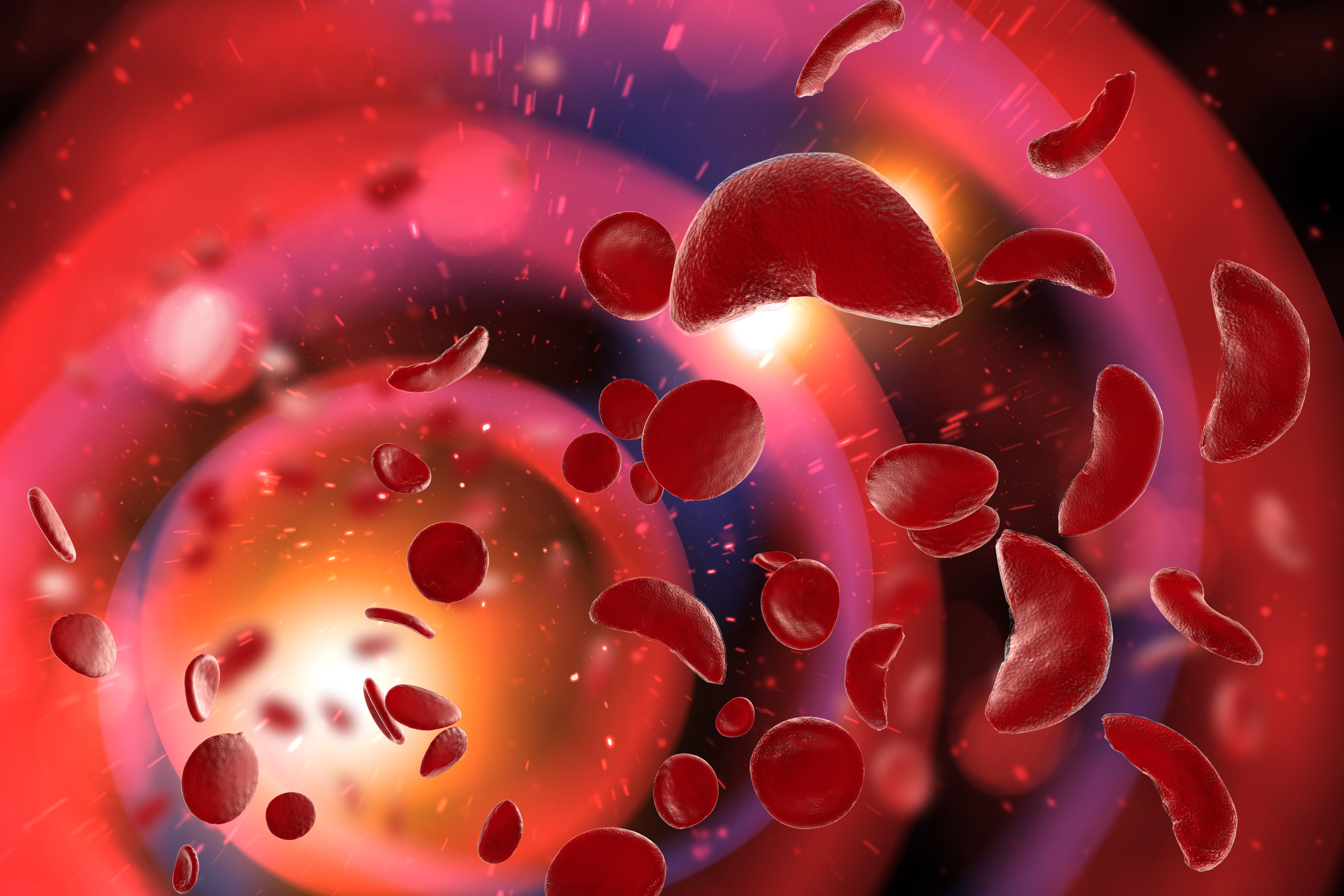- Center on Health Equity & Access
- Clinical
- Health Care Cost
- Health Care Delivery
- Insurance
- Policy
- Technology
- Value-Based Care
Gene Therapy Meaningfully Improves Quality of Life in Severe Sickle Cell Disease
Patients with severe sickle cell disease experienced significant quality of life improvements after receiving exagamglogene autotemcel gene therapy.
Patients with severe sickle cell disease (SCD) who received exagamglogene autotemcel (Casgevy; Vertex Pharmaceuticals), a cell-based gene therapy, experienced clinically meaningful health-related quality of life (HRQOL) improvements in a study published in Blood Advances.1
Sickle cell disease is an inherited blood disorder characterized by vaso-occlusive crises (VOCs), which have significant negative impacts on patient HRQOL.1 Treatment options for severe SCD are limited and aim to reduce severity. Allogeneic hematopoietic stem cell transplantation (HSCT) is potentially curative but carries risks of graft failure, graft-vs-host disease, and other immunologic adverse events that limit its use. Exagamglogene autotemcel, known as exo-cel, which utilizes CRISPR/Cas9 genome editing technology to modify patients’ own hematopoietic stem cells, was approved for the treatment of sickle cell disease in 2023.3
Adults and adolescents with sickle cell disease experienced early, sustained, and clinically meaningful improvements in HRQOL measures following exa-cel infusion. | Image credit: Ezume Images - stock.adobe.com

The new HRQOL findings come from patient-reported outcome (PRO) measures in the CLIMB SCD-121 trial (NCT03745287) and the CLIMB-131 long-term extension study (NCT04208529). In CLIMB-121, a one-time infusion of exa-cel eliminated severe VOCs in 97% of patients and hospitalizations due to severe VOCs in 100% of patients for 12 months or more.2 Based on the results, those who participated in CLIMB-121 were offered the opportunity to enroll in CLIMB-131.
Adult PRO measures included EuroQol Quality of Life Scale-5 dimensions-5 levels of severity (EQ-5D-5L), Functional Assessment of Cancer Therapy Bone Marrow Transplant (FACT-BMT), Adult Sickle Cell Quality of Life Measurement Information System (ASCQ-Me), and 11-point pain Numerical Rating Scale (NRS). In adolescents, EuroQol Quality of Life Scale-5 dimensions-youth (EQ-5D-Y), Pediatric Quality of Life Inventory (PedsQL), and pain NRS were used.
The median follow-up for PRO analysis was 33.6 months, with follow-up of up to 36 months in adults and 24 months in adolescents. A total of 46 participants with SCD received exa-cel, and 42 had at least 16 months of follow-up after infusion and were included in the PRO analysis.
At baseline, adult EQ-5D-5L health utility US and UK index and EQ VAS scores were lower than the general population. By month 6 after infusion, they had substantially improved, and improvements were seen in mean EQ VAS score (mean [SD] change from baseline, 17.7 [26.5] points) that exceeded minimal clinically important differences (MCID). The EQ-5D-5L health utility US and UK index scores also showed substantial improvement at this time point. These improvements were maintained through 36 months.
There were also improvements in the general well-being and quality of life component of the FACT-BMT [FACT-G] and the HSCT-specific component (BMTS). Mean FACT-G scores improved by 13.7 points from baseline to month 6 and were sustained through month 36. Notably, improvements in 4 FACT-G subscales (physical, social/family, emotional, functional well-being) exceeded MCID. Mean BMTS score, which is a measure of transplant-related well-being, improved by 2.7 points at month 6 and sustained through month 36.
Additionally, multiple ASCQ-Me subscales—emotional, social functioning, stiffness, sleep impact—showed clinically meaningful improvements by month 6 and at month 36 that exceeded MCID. There were significant decreases in pain episode frequency and pain severity by month 6, as well. Mean NRS score also improved by month 6 and was sustained through month 36.
Similar to adults, adolescents experienced improvements in mean EQ-5D-Y VAS score, PedsQL score, and pain NRS by month 6 that were maintained through month 24.
The study was limited by the use of PRO tools that were not designed for SCD, except the ASCQ-Me and PedsQL SCD modules. But the authors noted that these tools are often used for hematologic diseases they were not developed specifically for and produce interpretable results. The MCIDs in the study were also not specific to SCD, but they were developed for other hematologic disease states. In general, PROs are also limited and there were no quantitative pre– or post–exa-cel opioid logs in the trial that could provide more data on the pain experience.
“In conclusion, adults and adolescents with SCD had early, sustained, and clinically meaningful improvements in HRQOL measures following exa-cel infusion, with improvements seen across different instruments and domains, including physical, emotional, social/family, and functional well-being, pain experience, and overall health status,” the authors wrote. “These results confirm the broad clinical benefits of exa-cel, including associated improvements in quality of life and reductions in pain experience, in patients with severe SCD.”
References
1. Sharma A, Locatelli F, Bhatia M, et al. Improvements in health-related quality of life in patients with severe sickle cell disease after exagamglogene autotemcel. Blood Adv. Published online August 19, 2025. doi:10.1182/bloodadvances.2025016701
2. Frangoul H, Locatelli F, Sharma A, et al. Exagamglogene autotemcel for severe sickle cell disease. N Engl J Med. 2024;390(18):1649-1662. doi:10.1056/NEJMoa2309676
3. FDA approves first gene therapies to treat patients with sickle cell disease. News release. FDA. December 8, 2023. Accessed August 28, 2025. https://www.fda.gov/news-events/press-announcements/fda-approves-first-gene-therapies-treat-patients-sickle-cell-disease
